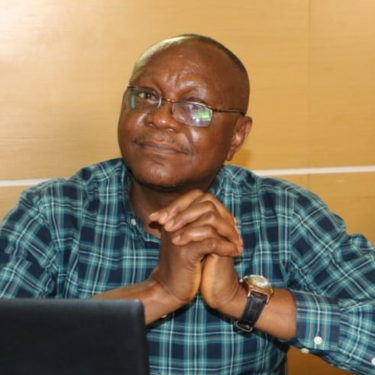Nigerian investigative journalist forced to flee after massacre disclosures

Reporters Without Borders (RSF) calls on the Nigerian authorities to guarantee the safety of investigative journalist Ibanga Isine, who fears for his life after the deaths of several sources linked to his reports on massacres in the north of the country.
During the night, his telephone lights up by itself. During the day, it is impossible to end some calls without switching the phone off.
Isine, who has won several awards, no longer trusts the cell phones which he believes are compromised and bugged because of his investigations into massacres carried out in the south of Kaduna State in the north of the country.
Editor of the The Next Edition, one of the leading investigative news websites in the country, he has moved away from his home after threats over his work became intolerable. Since he began his investigations, the fourth and final of which was published on 23 January, several of his sources have died.
A Head of district was murdered in his home. A lawyer and a former governor died suddenly. All of them had pointed out in Isine’s report the murky role played by the the state governor Malam Nasir El-Rufai in the intercommunal clashes in which several hundred people have been killed in the past year.
“After what happened to some of his sources, the journalist has many reasons to worry and to take precautions so he doesn’t meet the same fate,” said Arnaud Froger, the head of RSF’s Africa desk.
“In view of his important contribution in highlighting and reporting these massacres in order to bring them to an end, we ask the Nigerian authorities to guarantee his safety and to make every effort to allow him to carry out his work without fear of reprisals.”
The Kaduna state governor did not respond to requests by RSF for information about the safety of Isine and his sources.
“Here, not so many journalists have the guts to undertake this kind of in-depth investigations because they fear for their lives,” said a local reporter who asked not to be identified.
"It’s almost impossible to balance your story because authorities do not respond or use intimidation to prevent you from investigating”.
Kaduna is among the states to have recorded the most arrests of journalists in recent years and criticism of the governor sometimes leads to prison.
Overall, Nigeria had become one of Africa’s most dangerous countries for journalists. Since 2019, three reporters have been shot dead with total impunity during protests or rallies that have been violently broken up by the security forces. Despite proceedings launched by the families and supported by civil society organizations including RSF, no perpetrators have been identified and brought to justice.
Nigeria is ranked 115th of 180 countries in the World Press Freedom Index compiled by RSF.



